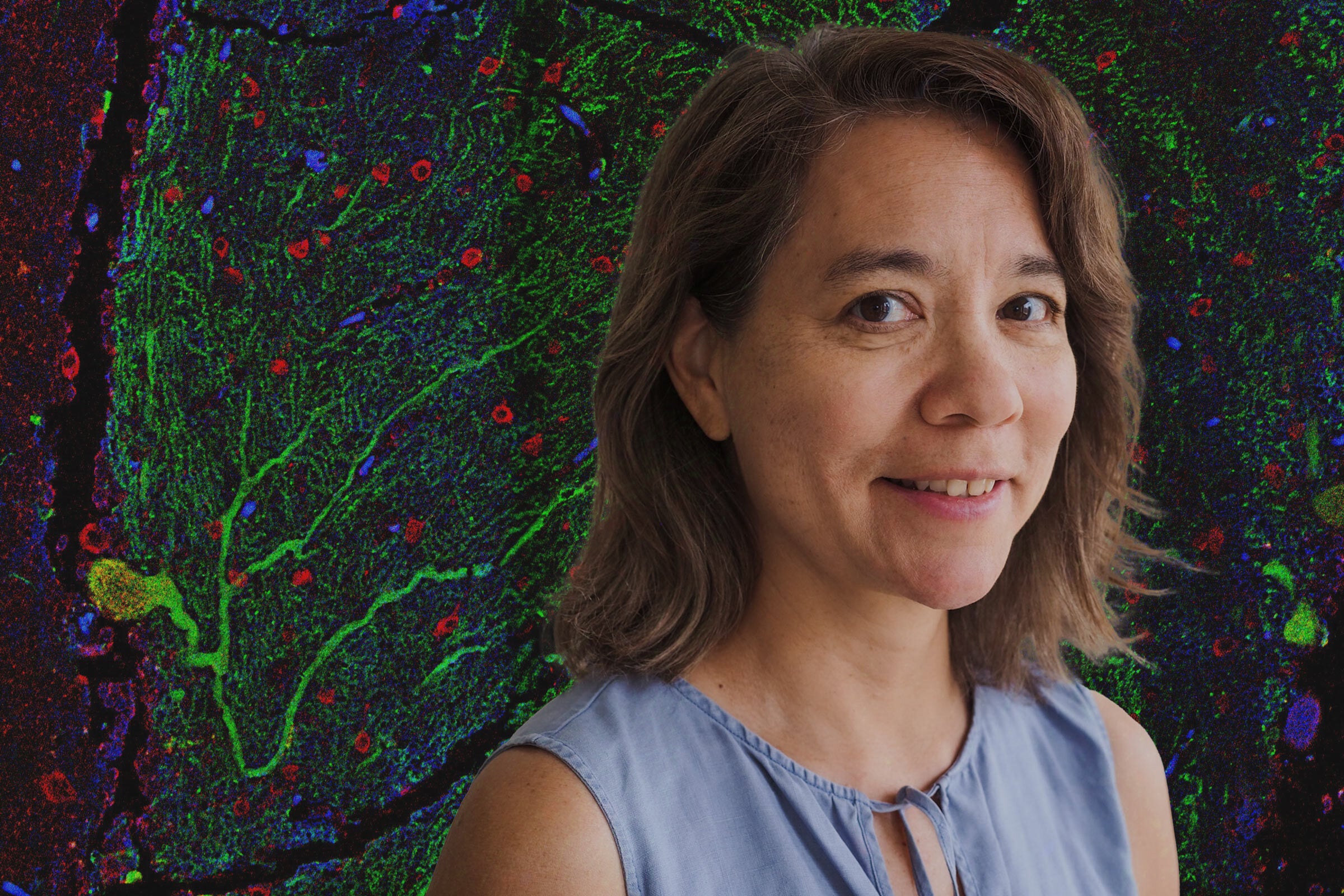Meet Three Exceptional Seniors Among our 2025 Graduates of Distinction
More than 150 top CNS students have been selected and celebrated for their distinctive contributions.

From left: Sanjana Kumar, Hayden Stegall and Miriam Yampuler. The University of Texas at Austin.
Each year, the College of Natural Sciences honors a select group of graduating students whose excellence in research, entrepreneurship and service and leadership sets them apart. We caught up with three of this year’s 157 Graduates of Distinction to hear about their journeys, passions and plans for the future.
Hayden Stegall
The biochemistry major received a distinction in entrepreneurship for creating an app called MealPanda.
How did you get into entrepreneurship?
I joined a research lab and realized the structured path of academia wasn’t for me. I wanted more freedom to pursue my ideas, and entrepreneurship offered that.
Tell us about MealPanda.
MealPanda is an AI-powered meal-planning assistant I developed to solve a problem I personally had: I’m always hungry, but I hate deciding what to eat and don’t have the foresight to meal plan. The app helps users select meals one at a time—by swiping right or left like on a dating app—and then compiles the ingredients into a grocery list you can order from. And it hooks right into Instacart. You also get step-by-step recipes and can chat with a raccoon-themed AI assistant for help or substitutions.
What challenges have you faced?
The hardest part of being an entrepreneur is self-motivation. You have to be your own boss and employee at the same time, and if one of those people isn’t on their game, nothing gets done. One trick I use is eliminating distractions until I’m bored enough to focus.
What advice do you have for other students who want to build something?
Start by getting interested in entrepreneurship. Run little experiments to test your ideas, the same way you would in science. Don’t worry about having the perfect skill set right away—I started coding MealPanda with ChatGPT and went from there.
What’s next?
I was accepted into a biochemistry grad program at Rice, but ideally, I’d love to pursue entrepreneurship full-time. Support me by visiting mealpanda.org!
Sanjana Kumar
The biochemistry major received distinctions in research and in service and leadership, including for her work as Senate Representative with the Natural Sciences Council
How did you get involved in student advocacy?
I joined the Natural Sciences Council (NSC) as a sophomore because I wanted to directly impact the CNS community. I was drawn to the legislative committee, where we wrote student legislation to address unmet needs. Even as a new member, I dove right in.
Tell us about a project you’re proud of.
One of my most meaningful projects has been our long-term collaboration with the CNS Wellness Center. We noticed that students weren’t fully aware of the center’s services, so we worked to strengthen that connection. I’ve maintained a two-year working relationship with Assistant Dean Anneke Chy to promote the center, and we’ve launched initiatives like creating reflection spaces and planning for sleep pods as part of a renovation project. We also worked with CARE counselors to design ways to promote student wellness.
What are the challenges of balancing leadership and academics?
I’ve had to learn to prioritize my studies, because if I’m not taking care of myself, I can’t serve others well. But my NSC peers and I support each other, and we’ve found a good balance.
What advice would you give students who want to make an impact?
Take care of yourself first—but don’t be afraid to get involved. When you’re passionate about something, it becomes easier to stay committed and have fun with it.
What’s next?
I’m planning to attend medical school.
Miriam Yampuler
The public health major received distinctions in research and in service and leadership in recognition of several projects, including at UT’s CD Doyle Clinic.
Tell us about your research experience.
I’ve explored a wide range—starting with wet lab work in the Freshman Research Initiative, then studying neuroscience at Cornell, and now community health research through the Dell Medical School’s CD Doyle Clinic. My current work focuses on improving care for people experiencing homelessness in Austin.
What projects have you contributed to at the clinic?
I’ve been involved in a few major research efforts: One examines how art and music serve as coping tools. We’re hosting art workshops, running pre- and post-surveys and finding that these sessions significantly improve mood and engagement. Another is a chart review project identifying barriers to care related to mental health, substance use and systemic access issues.
What drew you to public health?
I grew up with a single mom who worked as a psychologist and was active in community mental health. I realized I wanted to pursue something translational—public health gave me the tools to connect science with real human impact.
You’ve touched many corners of research. How do you tie it all together?
UT gave me the flexibility to try everything—wet lab, clinical, and social research. My major is highly interdisciplinary, and I’ve learned that science isn’t just about data; it’s about people and systems.
What advice would you give other undergrad researchers?
Let your values guide you. You don’t need to have it all figured out to start researching. Ask questions, explore new areas and keep your curiosity alive.
What’s next?
I’m taking two gap years before applying to medical school. I’m hoping to work in clinical research or public health policy internationally.



